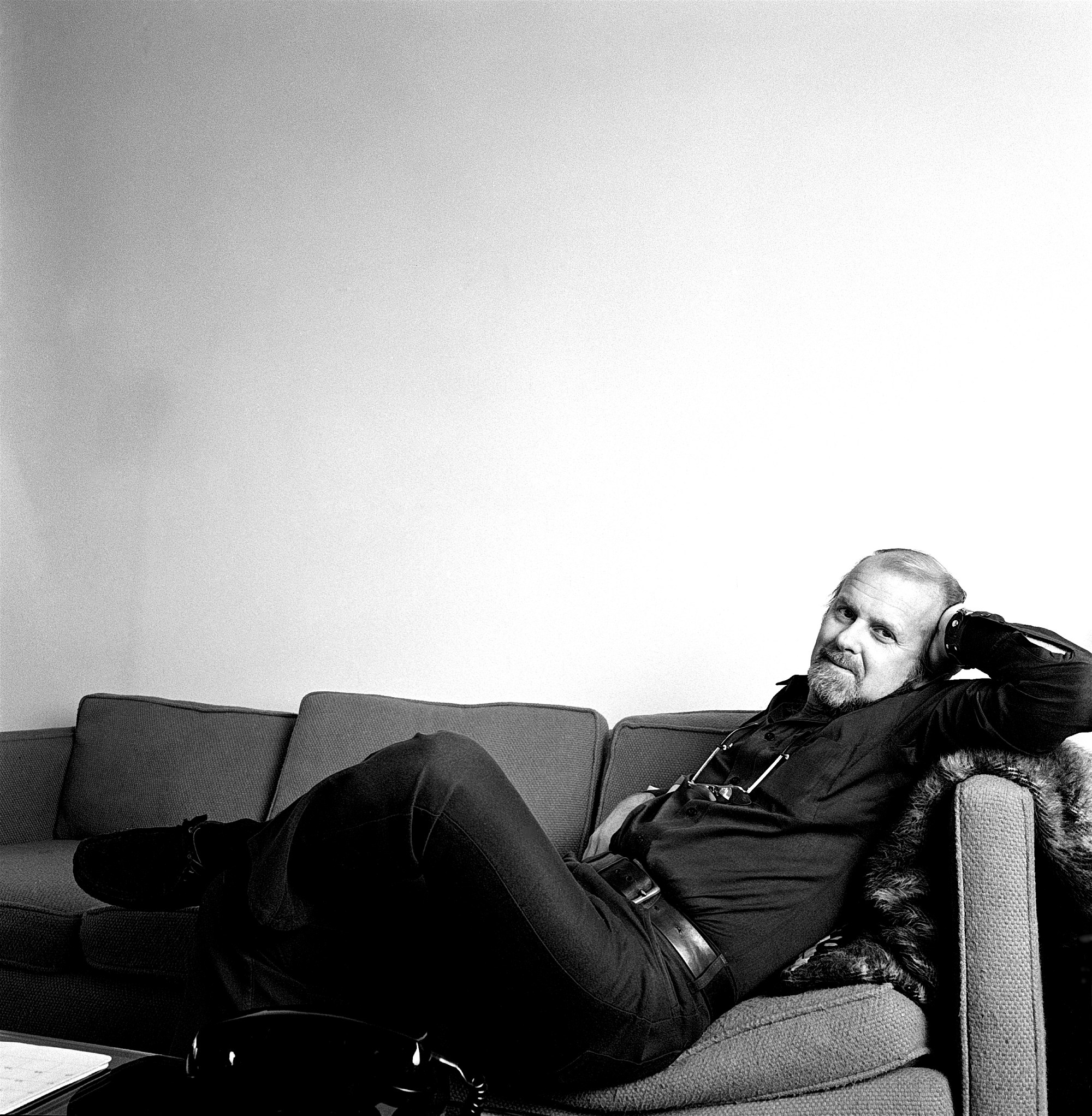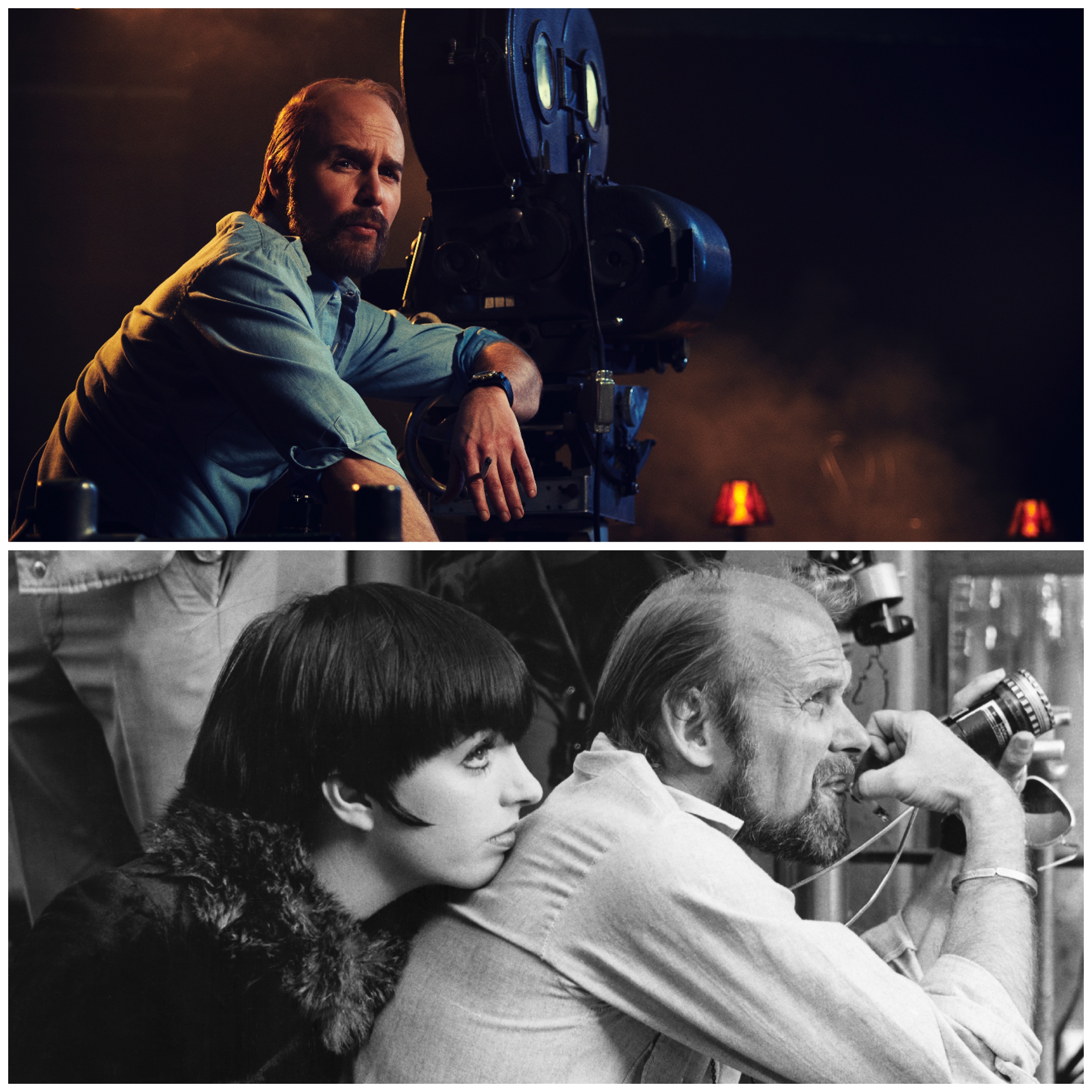
- Industry
Bob Fosse: Beyond the Legend
“I (saw) All that Jazz as a teenager, I think I was 15 or 16,” Steven Levenson told HFPA journalists at a recent press conference for Fosse/Verdon, the FX miniseries which revisits the relationship between director and choreographer extraordinaire Bob Fosse and his wife and collaborator – and Broadway superstar in her own right – Gwen Verdon. Levenson is the showrunner for the series starring Sam Rockwell and Michelle Williams; All That Jazz is the 1979 movie directed by Fosse covering some of the same autobiographical ground that the series explores in depth. “There was something so beguiling about it and something so enticing about this world that he created, in spite of the fact that it was meant to be a cautionary tale and push you away. I think for so many of us it made us all want to move to New York and get into this business.” The same could be said for the series which strives to portray two genial and imperfect individuals warts and all but is most of an all tribute to two great American artists at the height of their creative powers. Phil Berk, ex HFPA President, musical aficionado and Broadway sage sent us this reflection on the series and its subjects.
Watching Fosse/Verdon on FX I’m thinking, “When the truth becomes legend, print the legend.”
I had seen all of Bob Fosse’s early triumphs on Broadway, the two he choreographed –Pajama Game and Damn Yankees– and the ones he directed and choreographed- Redhead, Sweet Charity, and Pippin. I had also seen Gwen in her first show, Can Can, and her later triumph, Sweet Charity.
They were both gods for me. Particularly Fosse after he made Cabaret, the movie I named one of my ten best films of all-time in the Sight and Sound poll of 2012. I was also there on opening night for the revival of Chicago on Broadway in 1991.
Past president Yani Begakis urged me to accompany him that night. We waited 20 minutes for the curtain. Finally, the announcement that there was a bomb scare, and we were all herded out of the theatre and waited on the street. After a further delay, the show began.
Fosse, of course, was no longer alive at the time but the two women (and there were many) in his life, Gwen Verdon and Anne Reinking, were honoring his original contribution. He had devised the concept (as a succession of vaudeville acts) co-written the scenario, directed and choreographed the first production, which had the misfortune of opening in the same season as Michael Bennett’s groundbreaking A Chorus Line, which went on to deny Fosse the Tony nominations he felt he deserved.
But that story has a happy ending. Not only did Chicago go on to become the most successful film adaptation of a Broadway show since The Sound of Music, but it won both the Golden Globe and the Academy Award as best picture. That revival eventually won six Tony awards and has since become the longest-running revival in Broadway history. It is still playing today.

Sam Rockwell as Bob Fosse filming Cabaret, in the mini-series Fosse/Verdon, and Bob Fosse with Liza Minnelli on the set of Cabaret, 1972.
fx/bettman collection/getty images
Fosse, however, will always be remembered for the biggest upset in Oscar history. In the year of The Godfather, considered by some the best American film of all time, it would be Fosse rather than Francis Ford Coppola who was named best director (for Cabaret).
After that success, Fosse was again nominated for Lenny and for his penultimate film All That Jazz which won the Palme d’Or at the Cannes Film Festival.
The Hollywood Foreign Press was the first to be shown All that Jazz, but despite initial enthusiasm, it received only one Golden Globe nomination (for Roy Scheider as best actor in a musical or comedy). By the way, Fosse’s original choice for that role (a stand-in for himself) was Richard Dreyfuss who wisely resisted, knowing he couldn’t handle the dancing.
Fosse died of a heart attack in 1987, just before a revival of Sweet Charity was about to open. Always the showman, a celebration of his life was prompted by his bequest in his will to provide $250 “for dinner on me” to his many friends. Verdon reneged on this and instead organized a memorial service at the Palace Theatre followed by a dinner at the Tavern on the Green. Among the many who attended were Ann Reinking, Ben Vereen, Fosse’s agent Samuel Cohn., and writers E.L. Doctorow, Peter Stone, Noel Behn, Pete Hamill, Herb Gardner, and Neil Simon. Fosse idealized writers.
Taking charge was Gwen Verdon, although estranged from Fosse for many years, she was still married to him. And according to his biographer, she played the role of the widow to the hilt. Fosse left an estate of over $4 million divided equally between Gwen and their only child, daughter Nicole, whom HFPA journalists recently met as executive producer of F/X’ s Fosse/ Verdon.
But his legacy lives on well beyond any estate. His turned-in knees and jazz hand choreography remains as distinctive today as it was fifty years ago. And his artistry is ripe for rediscovery.

